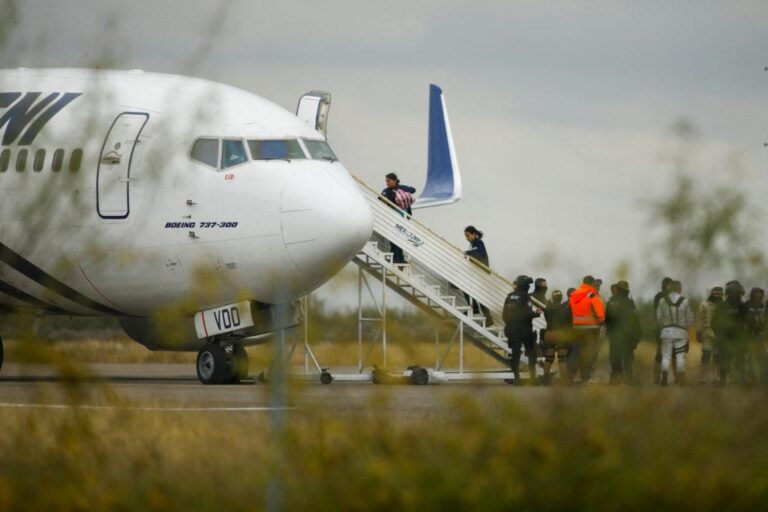Federal Inquiry into Unauthorized Migrant Transports to Martha’s Vineyard
Federal investigators have launched an extensive criminal inquiry into the unplanned migrant flights that landed on Martha’s Vineyard, Massachusetts, in 2022. This probe focuses on uncovering whether any legal breaches occurred during the organization and execution of these flights, which brought hundreds of migrants to the island without prior notification to local authorities. Central to the investigation are concerns about potential human trafficking, exploitation, and violations of aviation and immigration laws.
Investigators are meticulously reviewing:
- Flight permissions: Verification of compliance with Federal Aviation Administration (FAA) and Department of Homeland Security (DHS) regulations.
- Intent behind the transports: Whether migrants were misled or coerced into traveling.
- Logistical coordination: Identification of individuals or groups responsible for organizing and recruiting passengers.
- Adherence to protocols: Assessment of conformity with established DHS migrant relocation procedures.
| Investigation Component | Focus Area |
|---|---|
| Authorization Verification | Examination of FAA and DHS flight approvals |
| Communication Analysis | Scrutiny of correspondence among flight coordinators |
| Migrant Welfare | Confirmation of adequate care and safety measures during transit |
| Legal Compliance | Investigation into possible trafficking or fraud offenses |
Investigation into Potential Misappropriation of Public Funds and Legal Breaches
Alongside criminal inquiries, state and federal officials are probing whether public resources were improperly utilized to facilitate the migrant flights. Early findings suggest that some flights may have been arranged without official sanction, prompting questions about the legality and ethics of such actions. Authorities are currently auditing travel documentation, financial records, and official communications to identify any misuse of taxpayer money or breaches of protocol.
The investigation is concentrating on several critical issues:
- Funding sources: Determining if government funds were diverted to support the flights.
- Regulatory compliance: Evaluating adherence to federal and state immigration and transportation laws.
- Involvement of public officials: Investigating whether government employees played roles in planning or concealing the operations.
- Abuse of power: Searching for evidence of intentional deception or authority misuse.
| Investigation Area | Current Status | Upcoming Actions |
|---|---|---|
| Financial Review | In progress | Detailed examination of expenditures and public records |
| Official Interviews | Planned | Collecting statements and clarifications from involved parties |
| Legal Assessment | Ongoing | Evaluating grounds for criminal prosecution |
Local Reactions and Official Statements on Surprise Migrant Arrivals
The unexpected arrival of migrants on Martha’s Vineyard triggered a wide range of responses from residents and officials. While many locals showed empathy and quickly mobilized to provide essentials such as food, shelter, and medical care, others voiced frustration over the lack of prior notice and coordination with island authorities. The sudden influx placed considerable pressure on local infrastructure and services.
- Municipal leaders highlighted the challenges posed by the unplanned arrivals and stressed the necessity for improved communication in future operations.
- Community organizations launched donation campaigns and language support initiatives to assist the newcomers.
- State lawmakers demanded a comprehensive investigation into the planning and funding of the flights to prevent recurrence.
| Group | Response | Actions Taken |
|---|---|---|
| Local Officials | Concerned about preparedness | Called for formal inquiry |
| Volunteers | Supportive and welcoming | Provided aid and temporary housing |
| State Law Enforcement | Initiated criminal investigation | Opened official case files |
In light of growing political scrutiny, law enforcement agencies have expedited their criminal investigation into the parties responsible for the uncoordinated flights. The inquiry is examining potential violations of state and federal laws governing migrant transport and destination arrangements. This incident has also reignited national conversations about immigration policy, emergency preparedness, and the ethical duties of public officials in managing vulnerable populations. Discussions continue as stakeholders balance logistical realities with humanitarian concerns.
Strategies for Policy Enhancement and Better Coordination in Migrant Relocation
Effective migrant relocation requires a comprehensive overhaul of current federal and state policies. Establishing transparent protocols that emphasize humane treatment and interagency cooperation is essential to prevent future incidents like those witnessed on Martha’s Vineyard. Without cohesive federal leadership, fragmented efforts risk escalating public confusion and eroding trust in government institutions. Enhanced oversight is critical to ensure that migrant transport operations uphold ethical standards and are not exploited for political agendas.
To foster improved collaboration, all stakeholders—including government bodies, local authorities, and nonprofit organizations—should participate in ongoing, structured communication. The creation of a specialized interagency task force equipped with real-time data-sharing capabilities and efficient communication platforms can facilitate this process. Key proposed measures include:
| Initiative | Objective | Anticipated Benefit |
|---|---|---|
| Centralized Coordination Center | Unify communication channels | Accelerated response and decision-making |
| Uniform Relocation Standards | Guarantee consistent care for migrants | Enhanced well-being and regulatory compliance |
| Periodic Stakeholder Updates | Maintain transparency | Strengthened public confidence |
| Independent Oversight Committee | Ensure ethical and legal adherence | Increased accountability and reform |
- Clear legislative mandates delineating responsibilities during migrant relocations to prevent authority misuse.
- Community preparedness initiatives empowering localities to respond effectively to migrant arrivals.
- Investment in support infrastructure to provide dignified reception and integration services for migrants.
Conclusion
As investigations proceed, authorities remain focused on uncovering the full scope of legal and procedural violations related to the migrant flights to Martha’s Vineyard. This case highlights the intricate challenges at the crossroads of immigration enforcement and local governance. Ongoing updates will shed light on accountability measures and potential reforms aimed at preventing similar incidents in the future.




